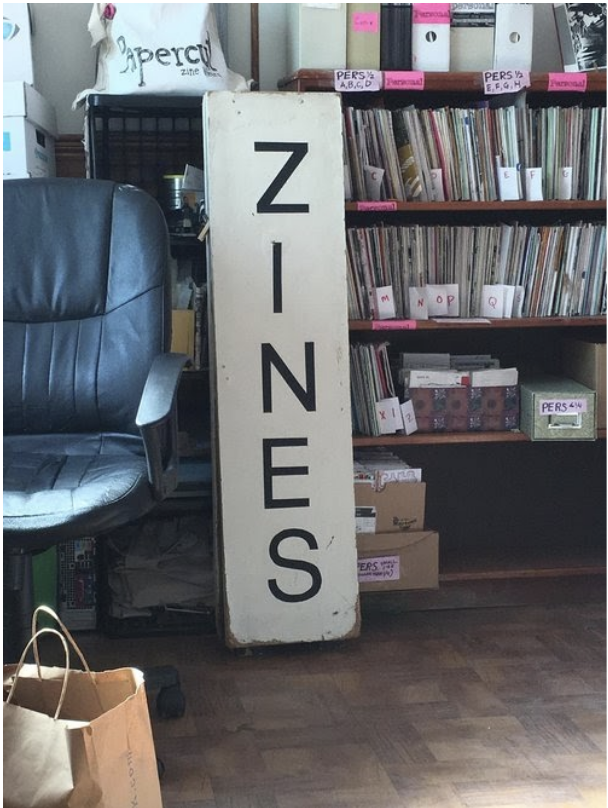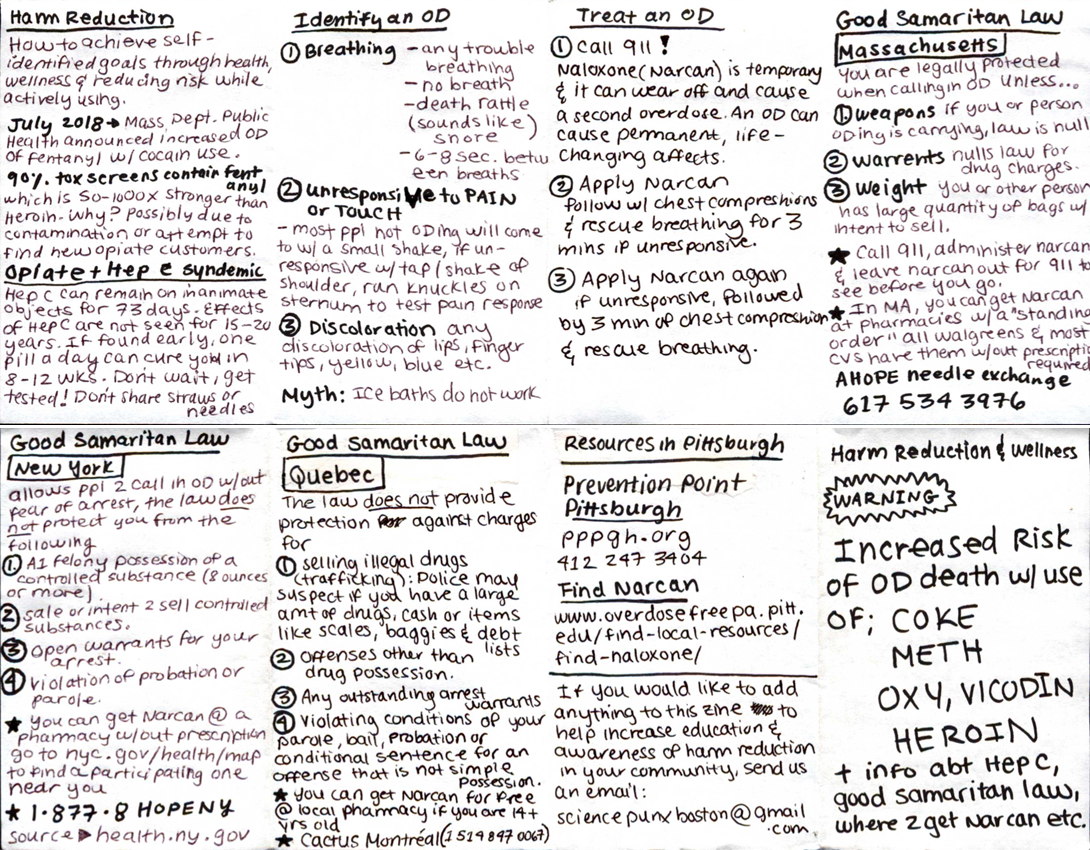Papercut Zine Library is a free, volunteer-run lending library that holds over 16,000 zines meant to amplify voices not normally heard in mainstream culture. I asked PZL volunteer Mona about how they got started and how they’ve managed to keep going, even though the physical space is closed.
Boston Hassle: How can people still connect with Papercut while the Democracy Center is indefinitely closed?
Papercut Zine Library: We have drop-in virtual catalog every Sunday at 11:30 AM. No experience necessary! October kicked off our monthly skillshare. Scabby [Volunteer Manager of PZL] presented an “Intro to Stop Motion Animation.” November will be “How Zine Making Can Be a Resource for Trauma and Healing.” December will be “Intro to Bookbinding.” They take place the first Tuesday of the month at 7 PM EST.
We also invite those interested in connecting with our librarians, or who wish to collab, to reach out. We often have PZL friends drop by one of our meetings to discuss or chat as needed. Our librarians meet a couple times a month via Zoom.
BH: How did you get started with zine making and distribution?
PZL: Every librarian will probably have a different answer, but for me, [I started] when I was a teen. There were some zines passed along from friends in junior high and high school. I also bought some music that included some. That being said, I didn’t get involved with PZL until 2015ish.

BH: What inspired the library, and what’s your vision for its future?
PZL: Someone’s personal zine collection [was the inspiration]. The founder reached out to some pals about donating her collection and starting a lending library, and the rest is history. Each librarian may have a slightly different idea of PZL’s ideal future, but we all agree that we exist as a public service to our community and resist elitism, racism, and any kind of “othered-ness” humans have historically experienced within or outside of their communities. I hope we are and continue to be a refuge for those who feel they do not belong and for those who feel they “belong” (whatever that means) but who find value in the resourcefulness and the aesthetic pleasure of zines.
A personal dream of mine is to make Boston’s leftist and punk/rock & roll scene less white. Unfortunately, gatekeeping exists not just in mainstream society, but in subcultures as well. We oppose gatekeepers, silencing, and any force that does not promote equal rights and each individual’s freedom to exist and express themselves without harm.
BH: Who are some of your favorite local creators?
PZL: There are so many! This one just came out, and I can’t wait to get my hands on a copy: Chris Strunk’s An Incomplete History of Long-Gone Illegal Punk Venues in Boston from 2000 to 2015. I also love Science Punk’s Skate Day zine which is all about International Girls’ Skateboard Day and how you can participate and sign up regardless of where you live on this planet.
BH: What is so powerful about zines as an art form? What do zines offer that no other form can?
PZL: I think the answer to this question is highly subjective but my two cents are: the largest value of zines is they have low-to-zero threshold. Anyone can make a zine and, most likely, find a zine with which they can identify, for that very reason. Particularly now, during the pandemic, the world can be isolating and feel limited. Zines can be many things, including but not limited to: a ticket out of isolation, a way to process, a simultaneous reflection of both one’s uniqueness and universality, a call to action (i.e., Girls’ Skate Day), aesthetic/eye candy, [or] informative literature such as our Harm Reduction zine we distributed throughout New York, Pittsburgh, Boston, and Montreal in response to Mass Department of Public Health’s report last year [on a concerning wave of drug overdoses on new synthetic opiates]. The goal of that zine was to educate community members on the dangers of sharing snorting materials. We provided free resources to our community members like Narcan and condoms. Zines can also serve as a way to provide historical reflection and narratives.
Papercut Zine Library’s physical space is located at 45 Mt. Auburn St. in Cambridge. The space remains closed due to COVID-19, but they are providing virtual monthly Skillshare “How-To” events via Zoom and weekly zine cataloguing time each Sunday. They are also accepting donations to qualify as a tax-exempt non-profit and continue this work. More information and how to sign up for the free events can be found here.



